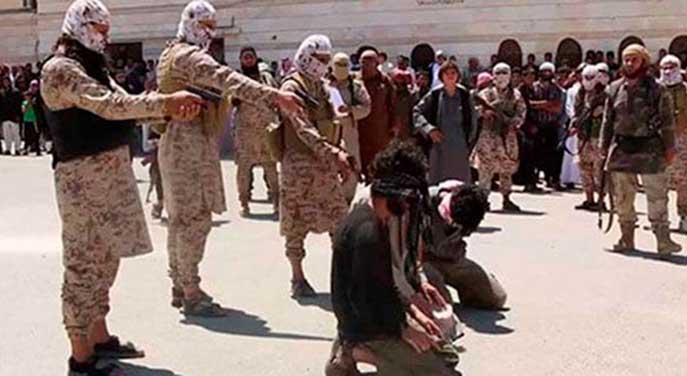 Initially, I was convinced that the war against ISIS could be morally justified. ISIS, after all, is a malevolent force from which neither Iraq nor Syria is able to protect their people. The international community, therefore, had a responsibility to intervene.
Initially, I was convinced that the war against ISIS could be morally justified. ISIS, after all, is a malevolent force from which neither Iraq nor Syria is able to protect their people. The international community, therefore, had a responsibility to intervene.
But beyond that, the moral waters get muddy.
Both Catholic “just war” theory, with its just war criterion of “just cause, and the United Nations Responsibility to Protect (R2P) principle support the defense of populations, and military intervention is one tool in the R2P toolbox.
But non-coercive tools are equally, if not, more important.
According to just war theory, the “prospect of success” and “proportionality” are key to evaluating the moral legitimacy of any war. In the war against ISIS, the prospect of success must look beyond the military objective of containing the terrorists. It must also consider whether it is realistically possible to foster a robust society once the war is ended. Proportionality looks at the harms resulting from military intervention and stipulates that a war should not create more evils than those it seeks to eliminate.
These principles, together with the hard lessons learned in Iraq and the present day realities in Syria, form the basis for a rigorous evaluation of the moral clarity of this war.
The ongoing civil war in Syria, which has displaced 11 million people and killed at least 220,000, certainly raises red flags about the prudence of airstrikes. Some of the rebel groups fighting the Bashar al-Assad dictatorship are as savage as ISIS, and the Assad regime itself is known for its ruthlessness. In his analysis of Canada’s mission for the CBC, journalist Brian Stewart argues that Canadian airstrikes in Syria could make an already chaotic situation even more deadly for civilians, embolden the Assad dictatorship, and lead to more sectarian fighting. Nor, he points out, is the elimination of ISIS a sure thing.
In 2003, George W. Bush projected a rosy future when he expanded the objectives for the war in Iraq to include humanitarian concerns; the life of the average Iraqi citizen, it was hoped, would dramatically improve with economic development, political reform and reconciliation and peace would reign supreme as old hatreds melted away. None of this happened. The American-led war against Iraq resulted in economic and political instability and flamed the fires of sectarian violence from which groups like ISIS rose from the ashes.
In the aftermath of the Iraq war, just war theorists proposed categories of “just result” and “restoration”. “Just result” mandates humanitarian aid both during and after a war. “Restoration”, like the non-coercive set of development tools found in the R2P toolbox, focuses on things like organizing police and judicial institutions, protecting civil liberties and human rights, and building infrastructure.
Unfortunately, Canada’s experience in Afghanistan suggests “just result” and “restoration” are illusive: without a comprehensive, consistent multi-lateral strategy that uses development tools to help build civil society following war, any humanitarian gains are in jeopardy. All of Canada’s humanitarian work in Afghanistan – from providing infrastructure for irrigation from the Dahla Dam, to vaccinating against polio, to establishing an environment for education through construction of schools – has been threatened since its withdrawal from Afghanistan, despite the contingent of American troops providing support for the Afghan National Security Forces. And, violence continues to be a reality of Afghan life.
While, on the surface, bombing ISIS appears to be a moral ‘no brainer’, without a concrete, workable and sustainable plan beyond airstrikes, the coalition of nations fighting in the war with ISIS may find itself mired in war against the next malevolent group to rise from the ashes for years to come.
Moral legitimacy for military intervention requires more than that we – in the words of Defence Minister Jason Kenney – “degrade and contain” the threat. It demands justice for the long haul, because regardless of theories and principles, human life hangs in the balance.
Louise McEwan has degrees in English and Theology. She has a background in education and faith formation.
Louise is a Troy Media contributor. Why aren’t you?
The views, opinions and positions expressed by columnists and contributors are the author’s alone. They do not inherently or expressly reflect the views, opinions and/or positions of our publication.


